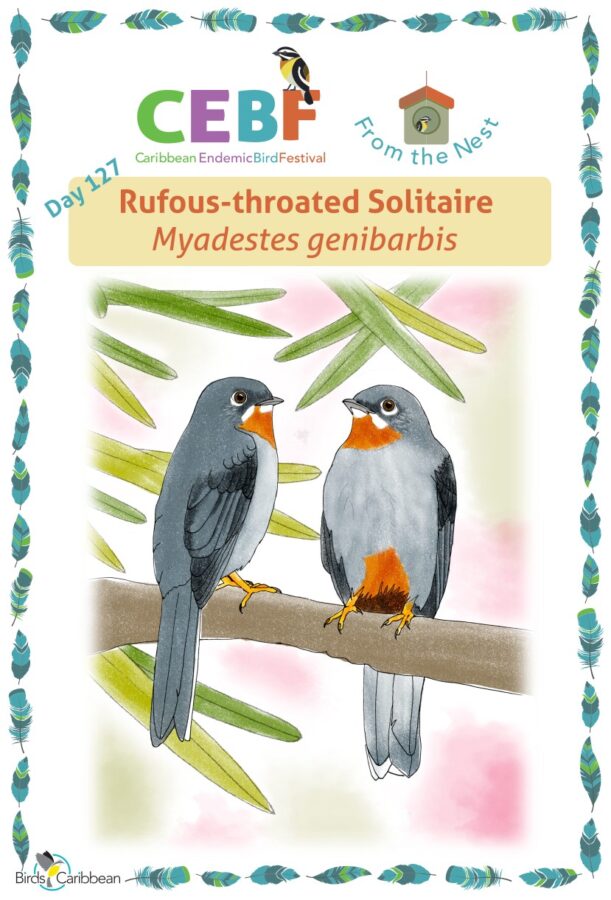Celebrate the Caribbean Endemic Bird Festival (CEBF) with us! Our theme in 2023 is “Water: Sustaining Bird Life” highlighting the importance of water conservation to both humans and birds. Have fun learning about a new endemic bird every day. We have colouring pages, puzzles, activities, and more. Download for free and enjoy nature with your family at home.
Endemic Bird of the Day: Rufous-throated Solitaire
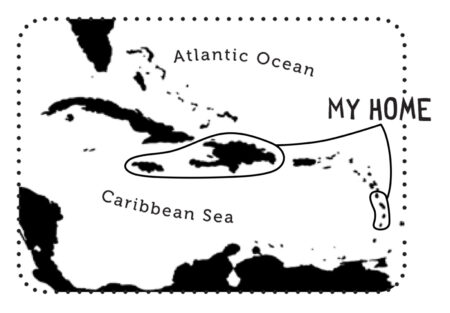 The Rufous-throated Solitaire (Myadestes genibarbis) is a beloved songster of wet montane forests. It is found only on the following islands: Jamaica, Hispaniola, Dominica, Martinique, St. Lucia, and St. Vincent, each with its own subspecies. Across these islands this bird is more commonly heard than seen. It is always a delight to anyone on the trails to hear its melodic and hauntingly beautiful song.
The Rufous-throated Solitaire (Myadestes genibarbis) is a beloved songster of wet montane forests. It is found only on the following islands: Jamaica, Hispaniola, Dominica, Martinique, St. Lucia, and St. Vincent, each with its own subspecies. Across these islands this bird is more commonly heard than seen. It is always a delight to anyone on the trails to hear its melodic and hauntingly beautiful song.
Its song consists of a series of clear and somewhat inharmonious flute-like whistled notes. The first note is low, second high, third low, interspersed with a ringing double note; or sometimes as “twuit, toi, tu-tu-tu-tu”. Calls include a single long “toot” like a distant car horn!
You’ll find this bird hidden in the canopy of humid montane forests. If you’re lucky enough to see it, the first thing you’ll notice is its brilliant brick-red throat with overall gray plumage—slate-gray above and paler gray below. It has a white crescent below the eye, a white-flecked face, and whitish chin and mustache separated by a dark malar (stripe from the beak down the cheek). The lower belly and vent are tawny, bill black, and legs yellow. The sexes are similar. Juveniles are dark with orange-buff spots and streaks above.
The Rufous-throated Solitaire forages up in the forest canopy, but it may occasionally feed in low vegetation. It feeds on small fruits and insects and travels alone or in mixed-species flocks. Insects are taken via aerial sallies, gleaning and hawking, and also by pouncing on insects on the ground from a perch.
In the Dominican Republic and Jamaica it is a partial altitudinal migrant. It moves to lower altitudes in colder weather and ascends to the higher highlands as temperatures rise.
The breeding season takes place from March to August in the DR and Jamaica, May in Haiti and May to July in the Eastern Caribbean. The nest is cup-shaped and usually placed in a crevice, creeper, in the center of a tree-fern or bromeliad, or tree hole. The female lays 2-3 eggs, bluish-white or blue with reddish-brown spots.
The species is not globally threatened but in Haiti its numbers are much reduced due to habitat loss. It would be a shame to lose this gorgeous bird and not hear its melodious forest song so we should support local initiatives to protect its habitats. Learn more about this species, including its range, photos, and calls here.
Thanks to Aliya Hosein and Lisa Sorenson for the text!
Colour in the Rufous-throated Solitaire
Download our West Indies Endemic Bird colouring page. Use the photos below as your guide, or you can look up pictures of the bird online or in a bird field guide if you have one. Share your coloured-in page with us by posting it online and tagging us @BirdsCaribbean #CEBFfromthenest
Listen to the song of Rufous-throated Solitaire
The song of the Rufous-throated Solitaire is a series of drawn out, flute-like whistled notes given at varying pitches.
Puzzle of the Day
Click on the image below to do the puzzle. You can make the puzzle as easy or as hard as you like – for example, 6, 8, or 12 pieces for young children, all the way up to 1,024 pieces for those that are up for a challenge!
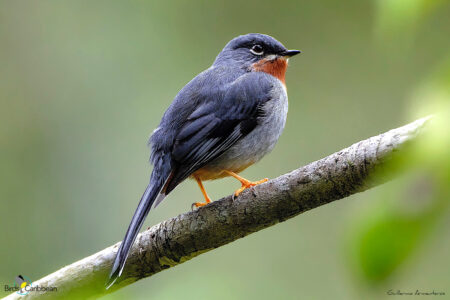
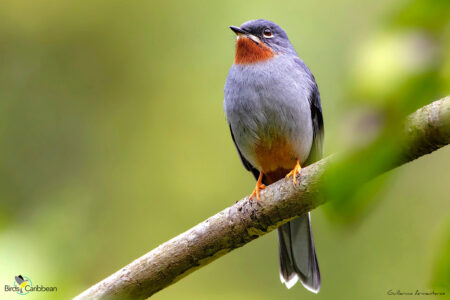
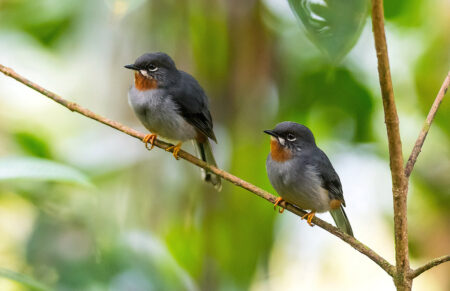
Activity of the Day
 FOR KIDS: Get creative and try singing (or playing a musical instrument) like a bird! Be inspired by the lovely song of today’s bird the Rufous-throated Solitaire, or one of our other featured endemic birds. You could also head outside and listen out for the sounds the birds are making and then create your own birdsong! You can download our instructions here to help you make some melodious bird-inspired tunes.
FOR KIDS: Get creative and try singing (or playing a musical instrument) like a bird! Be inspired by the lovely song of today’s bird the Rufous-throated Solitaire, or one of our other featured endemic birds. You could also head outside and listen out for the sounds the birds are making and then create your own birdsong! You can download our instructions here to help you make some melodious bird-inspired tunes.
We would love to hear your birdsong! Why not send a recording of your performance to Aliya.Hosein@birdscaribbean.
Please note that by submitting your video you give BirdsCaribbean consent to use your photos and/or videos on our website and social media accounts.
FOR KIDS AND ADULTS: Enjoy this video of a Rufus-throated Solitaire in the wild in Jamaica! You can hear it’s calls and another bird singing in the distance.

